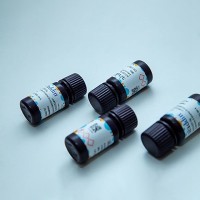Differentiation of Mouse Embryonic Stem Cells in Self-Assembling Peptide Scaffolds
互联网
互联网
相关产品推荐

EmbryoMax™ 青霉素-链霉素溶液,100X,用于细胞培养, The EmbryoMax Penicillin-Streptomycin Solution, 100X is available in a 100 mL format and may be used for routine mouse embryonic stem cell culture applications.,阿拉丁
¥174.90

BDNF重组蛋白|Recombinant Human / Mouse / Rat / Cynomolgus / Canine BDNF Protein
¥580

T7 Tag Peptide (T7 Tag多肽),≥98%(HPLC),阿拉丁
¥3104.90

Furin human,重组, ≥95%(SDS-PAGE), expressed in HEK 293 cells,阿拉丁
¥5110.90

N8152512珀金埃尔默进样针0.25 mm ID Self-aspirating Probe 80 cm PerkinElmer
¥11264
相关问答

